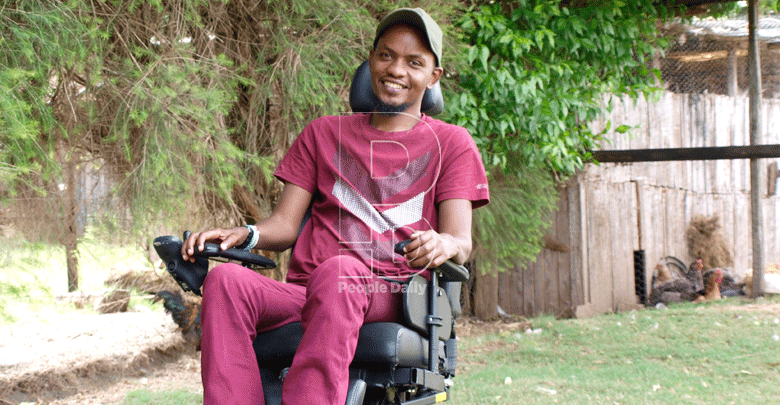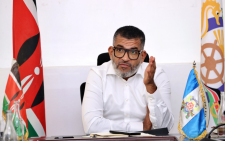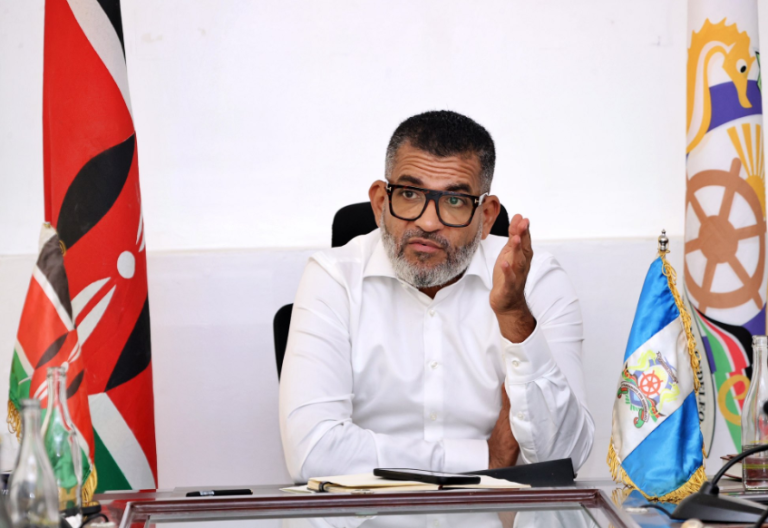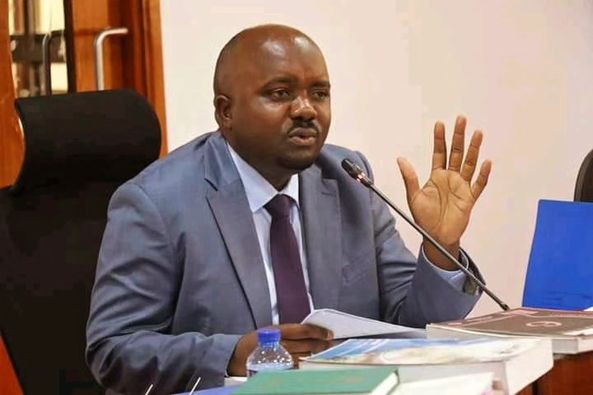Man on a mission to uplift lives of persons with spinal injuries

In the taxing and oftentimes bleak environment for the critically injured road accident victims, where psychological succor is largely swept to the fringes of healthcare, a local organisation has stepped in with a personalised support system for the victims as they navigate through new and difficult path towards self-actualisation.
The Cluster Foundation (TCF) is a non-profit organisation that inspires people with spinal cord injury to find hope in seeing the possibilities of leading an active successful life beyond their fears or barriers.
Many of the beneficiaries of the programme are critical road accident victims.
“We love adventure!” says Njoki Mwangi, a TCF founding trustee. “Among activities within TCF’s Recreational Therapy Programme is rallying people with paralysis who are stuck in their homes out and back into the mainstream of society through activities that include excursions, home visits, sports and entertainment.”
Co-founded by Njoki and Nick Nguyo in 2008, TCF has excursions that work two-fold.
One, they motivate and raise confidence levels of adult spinally injured persons (SIPs) and two, for the society at large, they enable general public to have a chance to engage with SIPs, empathise and incorporate them hence eliminating stigmatisation.
Through excursions, SIPs under the TCF family have been to the Kenya National Museums, Nairobi National Park, Kitengela Glass, Kenyatta International Conferences Centre rooftop, drives, picnics, theatres and movies, and lots of sports from kayaking to wheelchair basketball, swimming and ice-skating.
TCF’s Recreational Therapy Programme is currently made up of five programmes.
The I Can Experience (ICE) is based on the fact that majority of SIPs focus on what they now cannot do since they acquired paralysis – “I can’t this,” “I can’t that”.
“TCF steps in, influencing SIPs to change their perspective about themselves,” Njoki told People Daily.
“This helps them to rebuild their self-esteem and regain their self-confidence”.
Every month TCF organises activities, events, and excursions for SIPs to gather and experience something new or something old in a new way.
This programme enables them get together to socialise, share personal matters, learn to experience TCF activities together and to encourage and uplift one another.
The second one is Reaching Out Post-injury Experience or ROPE, TCF’s most-intense programme.
It involves SIPs in their homes, their family and friends, and their personal needs.
Under this, TCF volunteers visit two SIPs in their homes every quarter to ensure accessibility, comfort, interaction, and all else concerning SIPs in their surroundings.
This is crucial to because SIPs ought to be at their best, holistically, in their own private space, while at home and while with TCF.
This holistic approach caters to SIPs psychological, personal, mental and financial needs.
For couples affected by paralysis, TCF has Couples Out To Experience (COTE). It focuses on rekindling love, on learning to jointly cope with this new aspect and the impact on the family.
COTE encompasses tackling and restoring every aspect of marriage – from communication to intimacy, finances, children, the spouse caring for the SIP, and more aspects of life in a typical household setting.
The TCF mission is rallying SIPS out of their homes and back into the mainstream of society through the Disability Accessibility Training Experience or DATE.
This targets every place within the society in preparing them to receive SIPs equitably, inclusively and without prejudice.
TCF advocates that disability is the responsibility of the society — not just the affected family as has been the case based on traditional and cultural (damaging) beliefs.
In their last project, TCF plans to open the first Gallery in Kenya to stock all kinds of mobility, health, leisure, skills development and more accessories for persons with disability to enable accessibility with ease and at an affordable rate.
This, says Njoki, was strongly influenced by high levels of exploitation of persons with disability who don’t have a variety of options and are then forced to raise funds from family or the public.
By availing these critical items of care, the organisation hopes it will lessen burden on affected households and mitigate resultant psychological toll from exploitative costs of care.
For Japheth Mwanene, the TCF programme has provided an avenue for him to rediscover himself, and chart a new course in his life after a critical road accident 19 years ago. The activities have gradually opened his eyes to new frontiers in life.
“The experience normally helps one to move on with life,” Mwanene told People Daily.
“For example, last year but one, I happened to ride the Standard Gauge Railway from Nairobi to Mombasa, something I had never imagined would happen after my spinal chord injury.
It was the longest distance I’d ever travelled since I got injured. They’ve also taken us for horse riding. I’d never known that I could ride a horse, but I did it with the support of guides.
I had not even ridden a horse even prior to the accident. Through these and other activities, one feels a sense of belonging to the society. I feel more and more like I am still part of the society.”
Thanks to the train trip, made possible by the Kenya Railways Sarova Whitesands, Go-Africa Safaris and ICEA Lion, Mwanene had a taste of the good life at the Kenyan coast.
His three-day excursion was spent in a five-star hotel, a standard he was hitherto unaccustomed to.
It was a once-in-a-lifetime thrill, which made him feel important, respected and valued.
Communing with peers of similar predicament serves to boost one’s confidence further, Mwanene adds. Participating in activities with his fellow SIPs in the programme has helped imbue a “can-do” attitude in the former banker.
“After joining the TCF program,me I discovered there were other people of my calibre. I could see others do it, so why not me?
There was one activity, for instance, in which I experienced kayaking. It involved moving the boat with one’s legs, sometimes alone, which was something I had not experienced.
It instills the feeling that you too can do some of the things that able-bodied people can do.
“Overall, the TCF programme has helped me accept my condition. I am more conscious of the fact that life has to go on, despite my spinal chord injury,” said Mwanene.
At the programme, one meets others whose predicament might even be worse than one’s own, Mwanene said. Seeing them exerting themselves, striving to excel despite the enormity of their frailty, diminishes the chances of feeling self-pity, and challenges one to see themselves in a positive, capable light.
The build up of positive attitudes has been so big that he and his peers have caught themselves contemplating achieving new feats, which they had never imagined possible in their predicaments.
Not only has he found new friends, to replace many who slipped off his circles after his accident, he has also benefited from COTE, in which he and his spouse joined other couples in learning how to rekindle love, manage finances and make adjustments in their lives post-accident.
The programme has on board 82 SIPs in Nairobi, Nyeri, Embu, Murang’a, Mombasa, Bomet, Nakuru, Kericho.
“Because of this intervention, nine have become parents, 22 are driving themselves, three own vehicles but are driven, 16 are employed and at least 35 are running their own businesses,” says Njoki.











